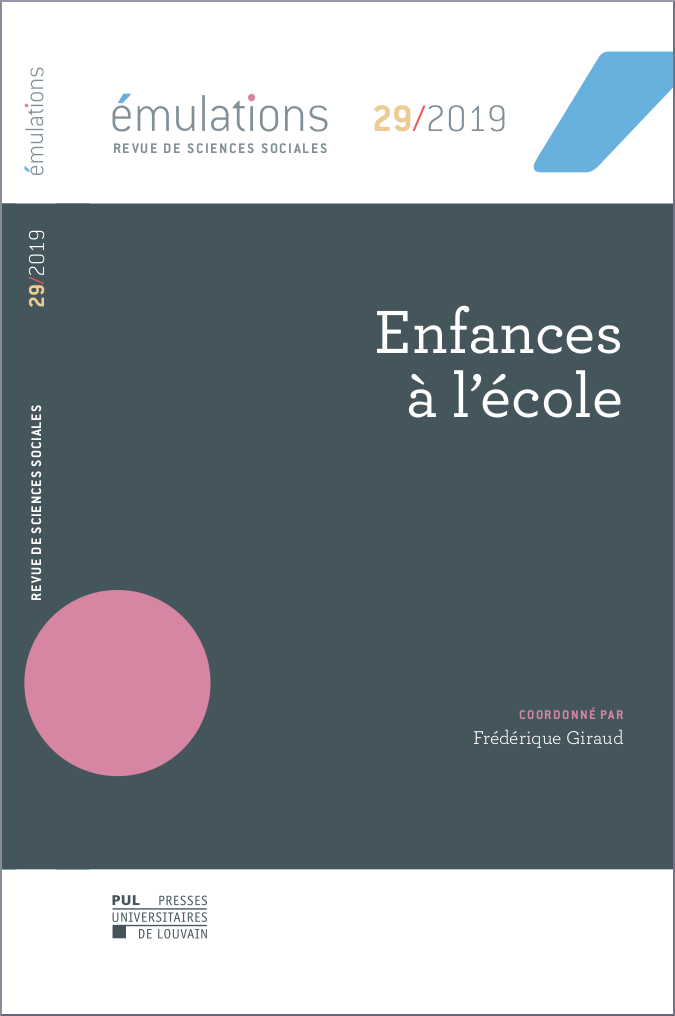L’émergence de l’allophonie comme construction d’une politique éducative
Le traitement scolaire des enfants migrants en France
DOI:
https://doi.org/10.14428/emulations.029.06Keywords:
educational policy, migrant pupils, childhood, youth, minorizationAbstract
Based on survey data (monographies and interviews collected in 8 schools), this article draws an analysis of the construction of a category of educational policy focused on the linguistic prism. This paper shows what the category of allophone produces as a school categorization and filtering institutional mechanism which consists in dissociating migrant students from each other, with reference to an implicit norm related to the “Francophonie”. While educational policies claim to promote accessibility, “allophonie” labels students and ranks them in its “total” and “temperate” form. Such dynamics endorse a form of school selection by practicing an aggiornamento of the rhetoric according to which certain children would be “savable” by the school, while others would not be it. The designation of “allophone” can feed multiple forms of minority between students as well as between migrant students and adults in charge of them in schools.
Downloads
Published
How to Cite
Issue
Section
License
Copyright (c) 2019 Emulations - Revue de sciences sociales

This work is licensed under a Creative Commons Attribution 4.0 International License.




.png)





